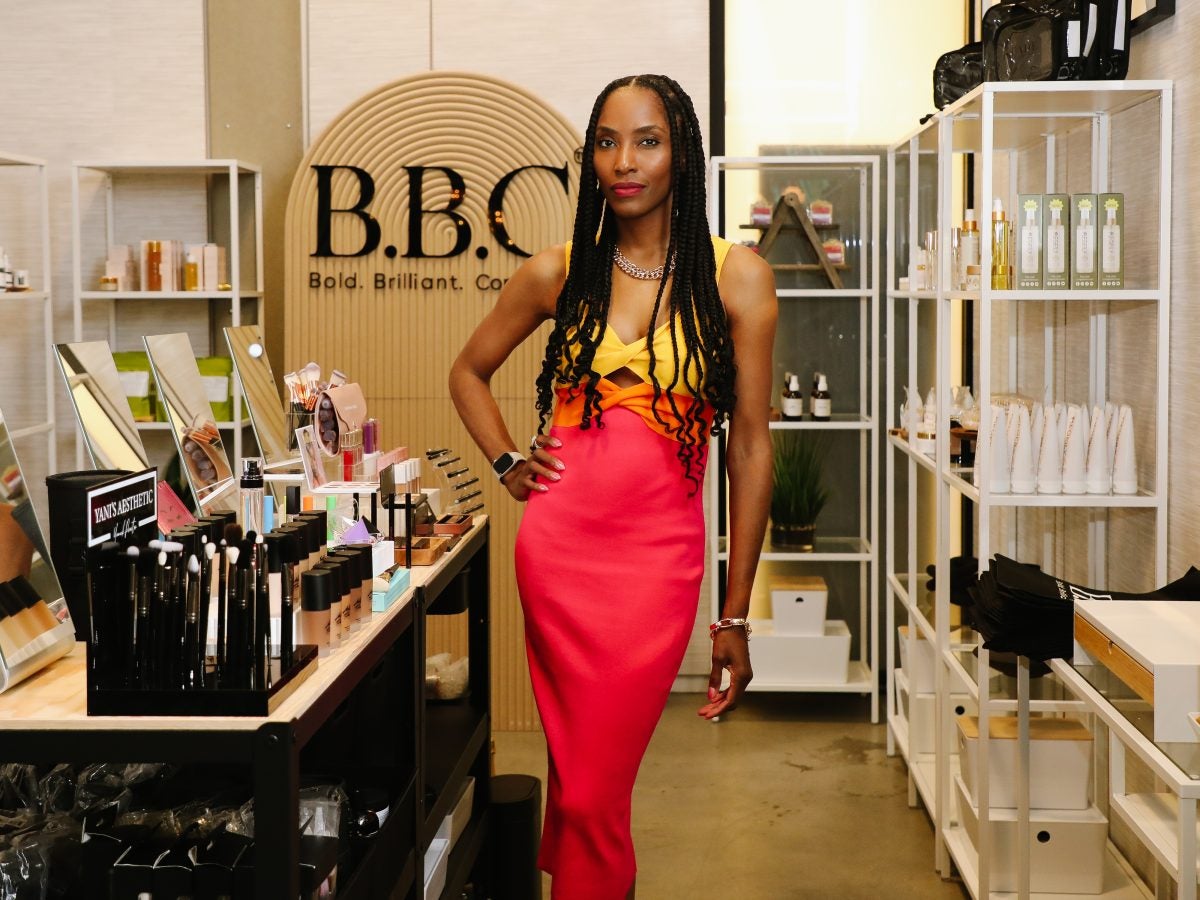
Leslie Roberson understands how hard it can be run and scale a beauty business. She once owned a luxury linen rental space for many years, sold it and in the midst of that transition noticed the disparity between Black women in beauty and the resources they need to be successful.
For context, in 2021 Black Americans spent $6.6 billion on beauty, yet there were glaring inequities in the wealth share for entrepreneurs in the space. Black brands make up only 2.5 percent of revenue in the beauty industry despite Black consumership comprising 11.1 percent of total beauty spending.
“It’s been an uphill battle for many founders and I really want to change that from the inside out,” Roberson tells ESSENCE.
In April 2023, she founded the Black Beauty Collective (BBC), an online marketplace for beauty and wellness brands from diverse (and mostly Black) founders. It recently opened two flagship stores in Chicago and LA. Unique already, it is even more special because of its business model.
Aspiring founders looking to have their products sold via BBC’s site and in-store are able to do so via a membership with fees that start as low as $100/month. Brands receive 100% of sales revenue after transaction fees and sales tax.
This is atypical, as products from a startup usually gets in stores by way of a distributor that will buy your product from you and then sell it to retailers. The store then gets a percentage of sales.
“I wanted to make the barrier to entry for Black beauty founders as low as possible because things are already difficult enough for us as it is,” Roberson shared candidly.
To date, the BBC is home for more than 50 diverse-owned brands, and much more than a retailer.
“I’ve worked closely with all the founders in a collective where most of them have my cell phone number. They’re calling me. I become almost like a mentor. I brainstorm with them. We’re thinking of ideas to really push their brand or how to drive traffic into their website, whatever it is. I do quarterly meetings with these founders. So I really know these people. And I hear and I know the passion that they have.”
Roberson even says that when founders get in a bind and can’t cover the membership fee, Roberson will offer scholarships to help support them.
“That’s my investment back into their business.”
She hopes other retailers will follow her lead in wrapping empathy into their business models.
“The key pillars we are led by are education, community, and capital,” Roberson says. “All three are incredibly important but that community piece stands our the most for me. What are we without one another?”